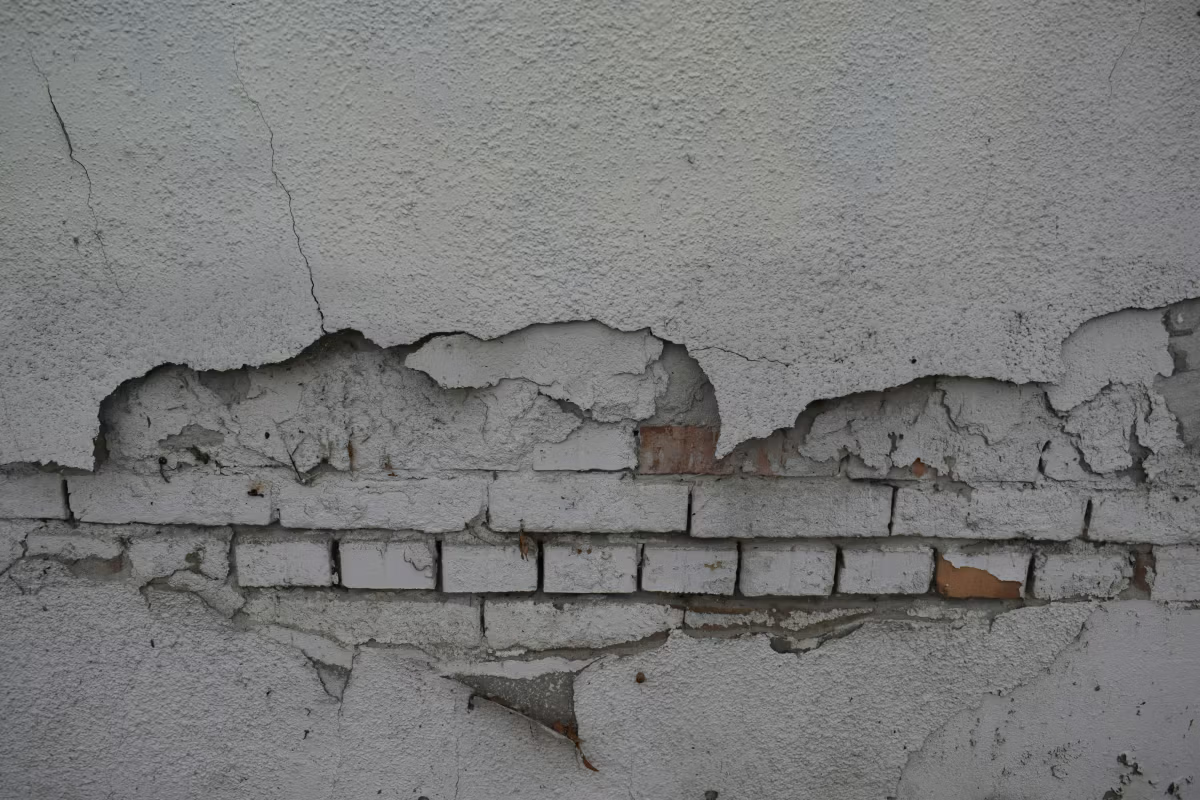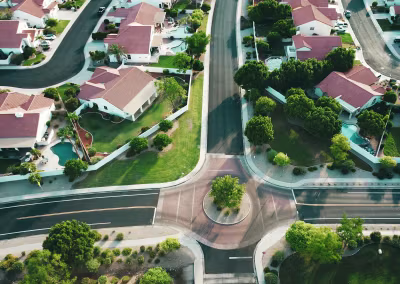Construction Defects

There is a housing shortage in Colorado, which is compounded by a lack of skilled tradesman in the construction industry. The end result is that new construction developments are often times rushed. Unfortunately, corners often get cut during the construction process, which inevitably leads to faulty workmanship and other construction defects. Indeed, the Colorado Attorney General has recently reported that home services and repairs are the second most common consumer complaint in the state.
Often times, the purchase of a new home is the single biggest investment an individual will make in their lives. It is understandably overwhelming to find out that your new home suffers from construction defects. If you have found yourself in this unfortunate position, you will want to speak with an experienced Denver construction defect lawyer. A qualified Colorado construction defect lawyer can answer your questions to help you better understand Colorado construction defect law. Following is a brief summary of these issues and laws that qualified lawyers for construction defects should be able to assist you with:
Types of Construction Defects
A "construction defect" is as a property condition that does not meet generally accepted standards of reasonableness in the construction industry. Most often these standards are defined by the construction contract or local building codes, which are often modeled off the International Building Code. With respect to Colorado construction defect law, there are a variety of "construction defects" that can arise during or after the construction of a new home. These can generally be broken down into "patent" and "latent" construction defects.
Patent Construction Defects: A "patent defect" is a construction defect that is readily apparent to a trained building professional during a site inspection. These defects are easily visible without the need to perform any intrusive or destructive testing to find them. Examples of patent defects include: large cracks in a basement's foundation, a prematurely aging roof, faulty plumbing, faulty electrical work, and building code violations.
Latent Construction Defects: On the other hand, a "latent defect" is a construction defect that may exist at the time of construction but isn't detected until after the construction project is completed. Unlike patent defects that can be detected and cured early on, latent defects can take years to manifest and can lead to significant structural damage. Latent construction defects include: building subsidence (sinking), ineffective waterproofing, and under strength structural components such as joists, I-beams, and roof trusses.
Common Construction Defects in Colorado
Being a Colorado construction defect attorney, I have seen the gamut of construction defects in new home construction and renovations. The most common types of construction defects in Colorado include:
Expansive Soils: Colorado, especially the greater Denver area, has high concentrations of "expansive soils." Expansive soil is a soil/clay that is prone to expansion or shrinkage with variations in water volume. Failing to account for expansive soils during the construction process can cause building subsidence, which can lead to damaged foundations, slab movement, cracked stucco, cracked drywall, and other structural defects.
Roofing: Roofing is common construction defect. Failing to properly seal penetrations and transitions and properly ensure adequate roof slope are two common defects that can cause water to pool and eventually find its way inside the structure.
Windows and Doors: Failing to adequately seal around door and window jambs and trim can allow water, drafts, and pests into the structure.
Balconies and Decks: Issues with these exterior features may include design or installation flaws. The failure to ensure that the feature adequately slopes away from the structure can also direct water towards the structure.
Grading and Drainage: It is crucial that water be directed away from the home and foundation. Unfortunately, many builders fail to ensure adequate slope, which will direct water towards the home. This can cause leaks, root, mold, and foundation problems.
Colorado Construction Defect Law
The Colorado Construction Action Defect Reform Act ("CDARA") is codified at C.R.S. § 13-20-801. For over 20 years, CDARA has governed how construction defect litigation and construction defect arbitration actions are conducted in Colorado. A Colorado construction defect law firm can help you better understand what legal recourse you have for construction defects. Following is a summary of how CDARA is applied to Colorado construction defect claims:
Who is a "Construction Professional"?
CDARA governs all actions against a "construction professional" "caused by a defect in the design or construction of an improvement to real property." A "construction professional" is defined as “an architect, contractor, subcontractor, developer, builder, builder vendor, engineer, or inspector performing or furnishing the design, supervision, inspection, construction, or observation of the construction of any improvement to real property”. Though your Colorado construction defect lawyer can help you answer this question, in effect, CDARA is applicable to almost everyone involved in the construction process.
Notice of Claims Process
To initiate a claim against a construction professional, a homeowner - generally through their construction defect lawyer - must provide that construction professional with a Notice of Claim ("NOC"). The purpose of the NOC is to provide the construction professional with reasonable notice of the building defect alleged prior to a construction defect lawsuit in the hopes that a resolution between the parties can be reached. CDARA requires the NOC to be served at least 75 (95 days for commercial property) prior to your construction defect attorney filing a lawsuit. Within 30 days of receiving the NOC, the construction professional must be allowed a reasonable opportunity to physically inspect the property and the claimed defects. Within another 30 days (45 days for commercial property) after the inspection, the construction professional may then offer the claimant a monetary settlement to resolve the construction defect claim or they may offer to remedy the the construction defect. Any written offer to remedy the construction defect must include:
a report of the scope of the inspection,
the findings and results of the inspection,
a description of the additional construction work necessary to remedy the defect,
all damage to the improvement caused by the defect, and
a timetable for the completion of the remedial construction work.
If no offer is made or the claimant rejects an offer, the claimant may then bring a construction defect lawsuit against the construction profession for the construct defect described in the NOC. If the construction contract requires pre-suit mediation, that must also be complied with prior to filing a construction defect lawsuit. If the claimant fails to comply with the NOC process, any lawsuit or arbitration will be stayed until the NOC process can be completed.
Statute of Limitations and Repose
A "statute of limitations" is a deadline for which a construction defect action can be filed. Under C.R.S. § 13-80-104, a construction defect action must be filed within two years after the claim "arises." A claim for construction defects “arises” when “the claimant or the claimant’s predecessor in interest discovers or in the exercise of reasonable diligence should have discovered the physical manifestations of a defect in the improvement which ultimately causes the injury.” C.R.S. § 13-80-104(1)(b)(I). Similarly, a "statute of repose" is also a deadline for which a construction defect action can be filed, but it operates slightly differently. While the statute of limitations begins to run upon the discovery of the construction defect, the statute of repose begins to run upon "substantial completion" of the construction project. C.R.S. § 13-80-104(1)(a). In Colorado, the statute of repose is six years; however, it can be extended up to eight years. If the defect arises during the fifth or sixth year after substantial completion of the construction project, then the claimant must bring the construction defect action within two years.
As you can tell, there tends to be a lot of confusion and disagreement as to when the statute of limitations or statute of repose has expired. As such, it is critical for homeowners to consult with a Colorado construction defect lawyer that can assist them in better understanding and evaluating these issues.
Initial List of Construction Defects
After obtaining a construction defect lawyer and filing suit, CDARA requires that the party claiming construction defects file an initial list of alleged defects in any arbitration or litigation. C.R.S. § 13-20-803. This list may be amended if additional defects are discovered; however the NOC process must be complied with for each additional defect.
Limitation on Claims
CDARA limits a homeowner's ability to file certain claims against a construction professional. The statute dictates that "no negligence claim seeking damages for a construction defect may be asserted in an action is such claim arises from the failure to construct an improvement to real property in substantial compliance with an applicable building code or industry standard." C.R.S. § 13-20-804. However, a negligence claim may be brought against the construction professional if there is actual damage or loss of use of the property, bodily injury or the risk bodily injury, or other safety hazard.
Limitation on Recoverable Damages
CDARA provides that a “construction professional otherwise liable shall not be liable for more than actual damages…” “Actual damages” are defined as “the lesser of the: (1) fair market value of the real property without the alleged construction defect; (2) replacement cost of the real property; or (3) reasonable cost to repair the alleged construction defect, together with relocation costs and, with respect to residential property, other direct economic costs related to loss of use, if any, interest as provided by law, and such costs of suit and reasonable attorney fees as may be awardable pursuant to contract or applicable law.” C.R.S. § 13-20-802.5. Additionally, actual damages may include monetary damages for “inconvenience, emotional stress, and impairment of the quality of life.” Hildebrand v. New Vista Homes, II, LLC.
If a homeowner establishes that the construction professional violated the Colorado Consumer Protection Act, they may be entitled to additional damages. For instance, a homeowner may be entitled to “treble damages,” which can equate to three times the amount of their actual damages incurred, if they establish by clear and convincing evidence that the construction professional engaged in bad faith conduct.
In order to establish a claim for additional damages, the homeowner must establish that the construction professional violated the CCPA and one of the following additional conditions: (1) the construction professional’s monetary offer of settlement is less than 80% of the amount of actual damages awarded, 2) the reasonable cost to complete the construction professional’s monetary offer of settlement is less than 80% of the amount of actual damages awarded, or (3) the construction professional either does not response to a homeowner’s Notice of Claim or fails to substantially comply with the terms of their offer of settlement to the homeowner. These damages are statutorily capped at $250,000.00.
How a Colorado Construction Defect Lawyer Can Help
As you can see, CDARA and the process for a construction defect lawsuit can be both time consuming and confusing. A qualified construction defect lawyer can help you assess your individual situation, walk you through CDARA, and help you effectively and efficiently resolve your construction defect claim. If you are a homeowner that has discovered that your property suffers from construction defects, consider scheduling a free consultation with me to discuss your legal options and our Colorado construction defect lawyer services. I am a Colorado construction defect lawyer that has helped many owners like yourself effectively resolve their construction defect issues and would be happy to discuss your concerns with you.
Have Questions About Your Case?
Schedule a free 15-minute screening call to discuss your construction defect or property damage claim with our experienced attorneys.


